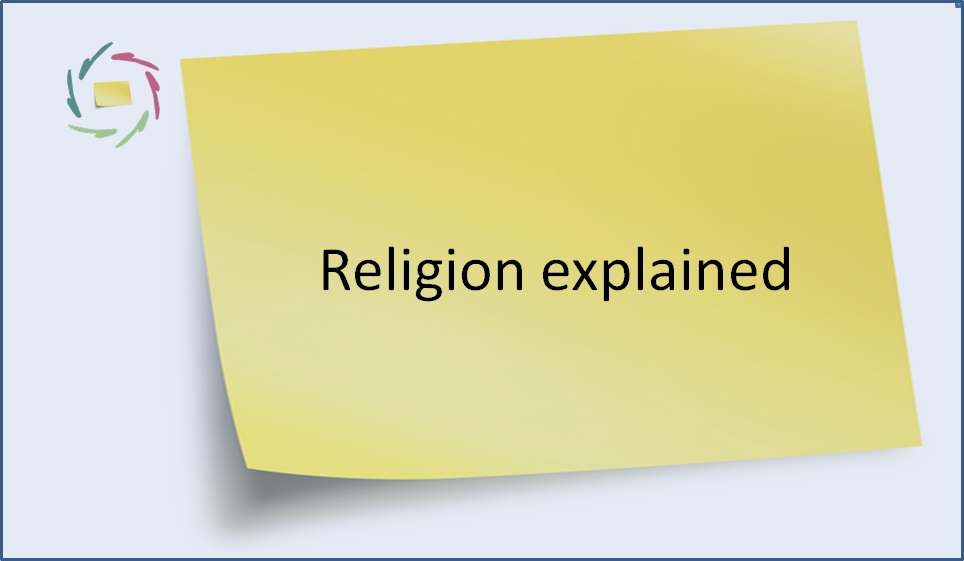37. Religion explained

Scientists keep looking for God in the minds of people. In this endeavor, experiments have been done whereby certain centers of the brain are stimulated by an electromagnetic field. Especially in conditions of sensory deprivation, people can thereby start having hallucinations with a very religious undertone. Something like ‘seeing the light and this light is God’ or ‘seeing Christ at the cross’ right before their eyes.
◊◊◊
One may say that surely this is ‘only a hallucination’. However to the person in question this is very ‘real’, with very deep feelings involved and in the end a religious-like certainty that this really is ‘God’. It’s probably the same feeling as when being in meditation and feeling oneself ‘one with the universe’. It’s also what can be experienced by some under the influence of psychedelic drugs. If one looks at accounts of the latter, in many cases there is no apparent difference from the accounts of the experiences by people who are called great mystics in every world religion.
◊◊◊
This might mean that even the most religious feelings can be neurophysiologically explained as simply a somewhat deviant functioning of the brain. And indeed, why not as something close to a medical condition or, if the religious person keenly holds on to his conviction, just plainly as a downright disease?
◊◊◊
Conclusion: religion is explained. It’s a disease.
◊◊◊
In a world full of people with their eyes closed all the time, the one who voluntarily and as a result of hard work gets to open his eyes is the one who sees the world. Also the one whose eyelids are removed, sees the world. Scientists may conclude from the latter that removing eyelids is in such cases what makes one ‘see things’. But is seeing the world then always merely the result of mutilation or mutilation-like action? Does this explain vision away as nothing more than a disease? I wouldn’t say so.
◊◊◊
The worth of vision is not vision itself, but what you do with it. After one or two blinks, you may again shut your eyes with a blindfold and never go further into it. Have you then ‘seen’ the world? No. You have only ‘glimpsed’ the world. Real ‘seeing’ is more than that. It’s interpreting, letting yourself be touched, letting your decisions and lifestlyle be dependent on, etc. ‘Seeing’ the world is opening yourself to let the world be alive inside you.
◊◊◊
According to me, people in the electromagnetic experiments, as well as people taking drugs do, in these circumstances really glimpse ‘reality’. In the end of course, this also depends on what one likes to call ‘reality’. What is its definition?
◊◊◊
Anyway, do these people also ‘see’ reality? That depends on what they do with it. Glimpsing reality may lead one to go deeper into it. It may also provoke different reactions, such as saying that in the end it’s all ‘nothing more than this’.
◊◊◊
Only God knows the absolute truth with absolute certainty.
◊◊◊


